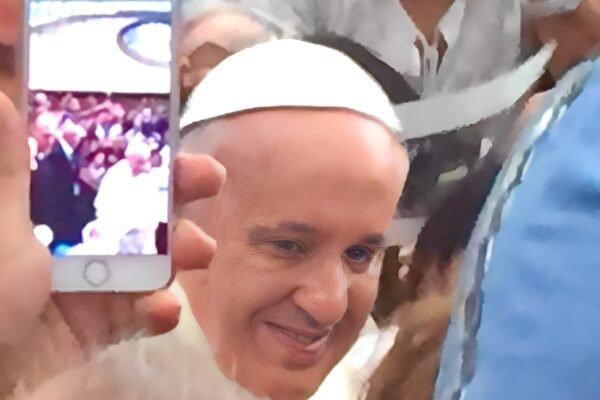Jimmy Carter, who passed away Sunday at the age of 100, was the president America needed after Watergate. In the aftermath of Richard Nixon’s resignation, Carter emerged as a leader who embodied sincerity, decency, and humility—a balm for a nation still reeling from scandal and distrust.
I had the privilege of covering his 1976 campaign as a political reporter for the Houston Post and later his 1980 re-election bid as a columnist for the Los Angeles Herald Examiner. Those experiences remain vivid, not just for the historical moments but for the man I came to know along the way.

Carter wasn’t your typical politician, especially not for the post-Watergate era, when cynicism about public figures was rampant. He was a peanut farmer from Plains, Georgia, and a devout Baptist with a moral compass so precise it occasionally seemed at odds with the rough-and-tumble world of national politics. His unassuming nature was part of his appeal. Here was a man who wasn’t just trying to win votes—he was trying to restore America’s faith in its institutions, and in itself.
During the 1976 campaign, Carter’s candor could be startling. At a time when politicians carefully curated their images, he admitted in an interview with Playboy magazine that he had “lusted in his heart.” The remark raised eyebrows, made headlines, and sparked endless debates. But it also revealed a man who was unafraid to confront his humanity and his faith in public. It was the kind of honesty that might have seemed naïve, yet it resonated deeply with voters yearning for authenticity.

Carter’s presidency began with enormous promise. His inaugural address emphasized a government “as good as its people.” He walked down Pennsylvania Avenue after taking the oath of office, eschewing the traditional limousine ride—a symbolic gesture that reinforced his image as a man of the people. Inside the White House, he brought a simpler, more personal style of leadership. He insisted on carrying his own luggage, wearing cardigans instead of suits, and holding “fireside chats” to communicate directly with the American public.
But Carter’s time in office was not without its trials. The Iranian Revolution and the ensuing hostage crisis in 1979 became defining moments of his presidency. As he struggled to navigate the complex and rapidly changing dynamics of the Middle East, the crisis dominated headlines and ultimately eroded public confidence in his leadership. In retrospect, it’s clear that Carter was grappling with forces far beyond his control—shifts that would reshape global politics and America’s role in the world.
Despite these challenges, Carter’s presidency left a lasting legacy. His commitment to human rights became a cornerstone of his foreign policy. He brokered the Camp David Accords, a peace agreement between Egypt and Israel that remains one of the most significant diplomatic achievements in American history. At home, his administration began emphasizing energy conservation and environmental responsibility—issues that would only grow more urgent in the decades to come.
For all the criticism he faced during his presidency, Carter’s post-White House years cemented his place as one of the most respected figures in American life. He became a tireless advocate for peace, democracy, and public health, founding the Carter Center in 1982. He helped eradicate diseases like Guinea worm, monitored elections around the world, and built homes for the poor with Habitat for Humanity. He demonstrated that there is no expiration date on public service.
Covering Carter’s campaigns offered glimpses into the man behind the office. I remember moments when his sincerity shone through, such as when he spoke of his childhood in rural Georgia. He talked about growing up in a segregated South and how his Christian faith had shaped his views on equality and justice. Carter was a New South politician who sought to redefine the image of the region. He wasn’t burdened by the racial and political baggage of his predecessors; instead, he represented progress and reconciliation.
In 1980, when I covered Carter’s re-election campaign, the optimism of 1976 had been replaced by the weight of governing through turbulent times. The Iranian hostage crisis and an economy plagued by inflation made his path to a second term arduous. Ronald Reagan’s charisma and promise of a “morning in America” resonated with a public eager for change. Carter lost that election, but he didn’t lose his dignity or his resolve to make a difference.
What struck me most about Carter was his enduring humility. Even in defeat, he remained steadfast in his beliefs and committed to his principles. He didn’t crave the spotlight or seek redemption through political comebacks. Instead, he dedicated himself to the quiet, unglamorous work of improving lives. He taught Sunday school in Plains, worked alongside volunteers hammering nails and painting walls, and shared his wisdom with anyone who sought it.
Jimmy Carter was a man of faith and conscience in an era when those qualities often seemed in short supply. He was a president who reminded us that leadership is about more than power—it’s about service, integrity, and the willingness to confront uncomfortable truths. He once said, “We must adjust to changing times and still hold to unchanging principles.” That philosophy guided him through a life well-lived and a century marked by extraordinary change.
As I reflect on Carter’s legacy, I’m reminded of the quiet strength he embodied. He wasn’t perfect, and he didn’t pretend to be. He faced criticism with grace, setbacks with determination, and opportunities with humility. He changed the image of the South, healed a wounded nation after Watergate, and spent his post-presidency proving that character is destiny.
The last time I saw him was decades ago, but the memory remains vivid. He was shaking hands with supporters, his smile as genuine as ever, his blue eyes twinkling with the optimism that never seemed to fade. That’s how I’ll remember him—a man who believed in the goodness of people and the possibility of a better world.
Jimmy Carter lived a century, but his legacy will endure far longer. May we all strive to lead lives of such purpose and grace.
TONY CASTRO, the former award-winning Los Angeles columnist and author, is a writer-at-large and the national political writer for LAMonthly.org. His forthcoming novel, THE BOOK OF MARILYN, will be published in 2025. He can be reached at tony@tonycastro.com.




